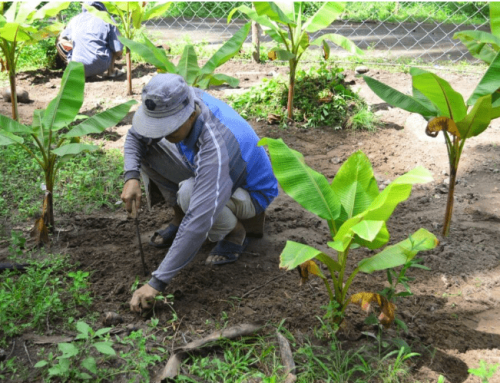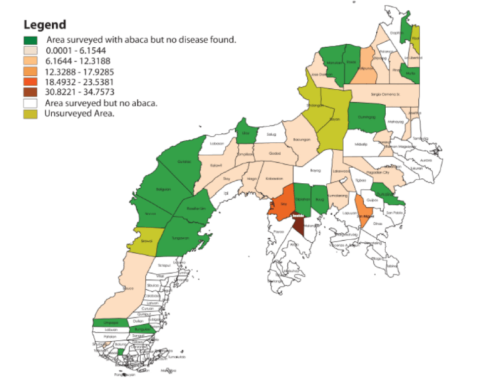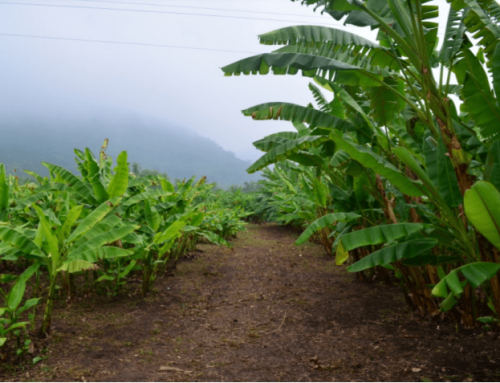In this Article

As the world’s top exporter of abaca, the Philippines earns around US$80 million annually. Although the country maintains its lead in global abaca fiber production, infestation from viruses like the Abaca Bunchy Top Virus (ABTV), abaca mosaic, and abaca bract mosaic are among the impeding factors in the production of abaca. In fact, 19,000 ha of abaca were reportedly damaged by ABTV in 2011.
To address this, a project was implemented to establish the genomic resources that could be used to improve its yield and fiber quality. Titled Abaca Abaca Functional Genomics: High Throughput Discovery of Genes and Molecular Markers, the project was implemented by the Institute of Biological Sciences of the University of the Philippines Los Baños (UPLB). The project is funded by the Philippine Council for Agriculture, Aquatic and Natural Resources Research and Development of the Department of Science and Technology (DOST-PCAARRD). The project examined the genetic, molecular, and biochemical mechanisms that support abaca’s economically important traits such as fiber quality and ABTV resistance. The method aims to develop molecular markers that would eventually lead to genetic improvement, which can increase yield and enhance fiber quality, resulting in the improvement of abaca farmers’ livelihood.








